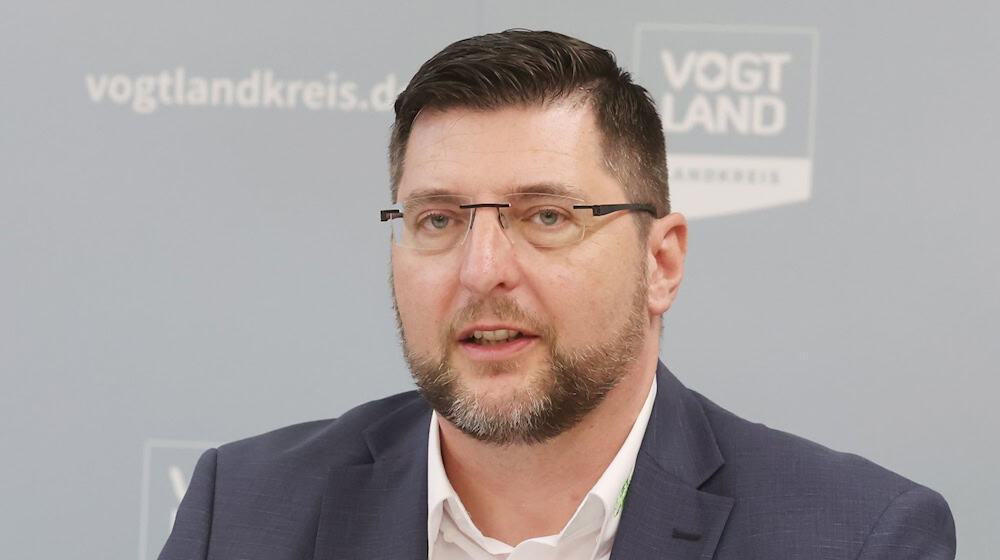In the face of a dramatic financial imbalance, Saxony's rural districts are calling for a swift solution to the problem. "Even if we were to reduce voluntary expenditure completely to zero, we would no longer be able to balance the deficit. This would kill off the district," said Vogtland District Administrator Thomas Hennig (CDU) to the German Press Agency. There are voluntary tasks at the municipal level, but they are basically perceived as a compulsory task - such as the financing of music schools or local public transport. "I can't just close the music school."
According to Hennig, the chronically underfunded districts are increasingly unable to act. On Friday, the Saxon County Association put the deficits for the next two years at a total of 833 million euros. District administrator Hennig made it clear that this does not even include the wage increases for employees. A one percent wage increase would mean around one million euros in additional expenditure for the district of Vogtland.
"All we have is expenditure, expenditure, expenditure and we don't know how to finance it. More and more things are being ordered by the federal government but not paid for," said the district administrator, citing, among other things, the changes to housing benefit.
In Saxony, a third more people are now entitled to housing benefit. The districts would have to increase staff to cope with such tasks and would be left with the costs.
The situation is also dramatic in the care sector. Two large providers in Vogtland would increase the co-payments of those in need of care from the previous 2,500 euros to 3,400 to 3,600 euros. "Who has a pension of this size here? Private assets are quickly used up. After all, the district has to pay for it." As a district, you could increase the district levy for the municipalities, but then the towns and municipalities would go bankrupt. "Once something is broken, it is difficult to rebuild it."
"We can only react instead of act, we can only manage instead of shape. It's depressing," said the politician, who used to be the mayor of Klingenthal. After all, the aim is to move the district forward. "We're going round in circles. It really wears you down. You can't switch off at all. You're constantly thinking about how you're going to pay for it all. Yet our district is still in a comparatively good position thanks to its reserves. Most districts have to take out cash loans and pay a lot of interest on them."
Hennig called on the Free State of Saxony and the federal government to act quickly. He had the feeling that Dresden and Berlin were living in a bubble. The federal and state governments should cover 100 percent of the mandatory tasks and reimburse the additional costs.
Saxon Finance Minister Hartmut Vorjohann (CDU) has not been aware of the problem so far. As the former mayor of Dresden, he should actually know better. "My hope now is that Minister President Michael Kretschmer will intervene. Otherwise the districts will go overboard and, with a time delay, the municipalities too."
Copyright 2024, dpa (www.dpa.de). All rights reserved










